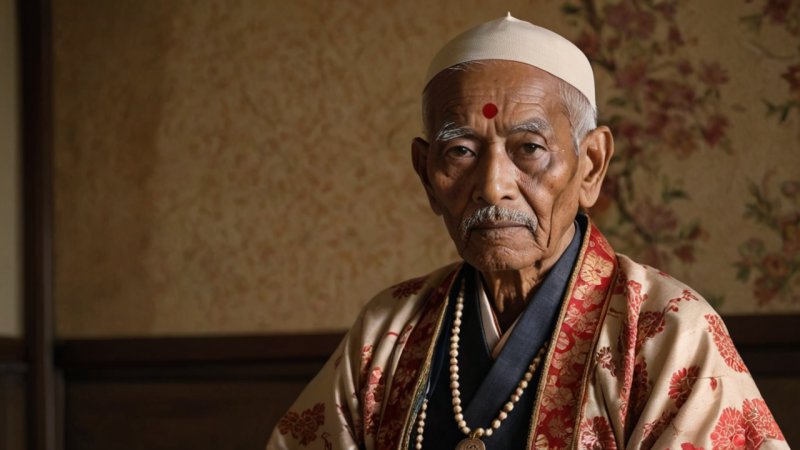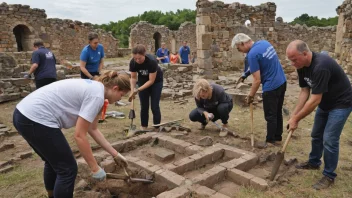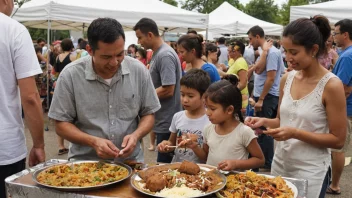As societies evolve, the role of the elderly within them is often redefined. In Asia, where traditions and modernity coexist, the elderly hold significant positions that vary across different cultures. This article will explore the roles of the elderly in two distinct Asian societies: Japan and India. By examining their roles, societal perceptions, and the support systems in place for the elderly, we can gain insight into how culture shapes the experience of aging.
Historical Context
Understanding the historical context of both Japan and India is crucial to grasp the current roles of the elderly in these societies. In Japan, a long-standing reverence for elders is rooted in Confucian values, where respect for one’s family and elders is paramount. Conversely, in India, the elderly have traditionally been seen as the custodians of wisdom, deeply embedded in family structures influenced by Hindu beliefs.
Japan: The Revered Elder
In Japan, the elderly are often regarded as symbols of wisdom and experience. The concept of 'filial piety' plays a major role, reflecting a cultural obligation to care for one’s parents and grandparents. This cultural norm is evident in various aspects, including:
- Family Structures: Many elderly individuals live with their families, often in multi-generational households.
- Social Programs: The Japanese government has implemented various programs to support the elderly, including healthcare and community centers.
- Respectful Language: Language in Japan reflects the importance of elders, with specific terms used to address them respectfully.
India: The Wise Guardian
In India, the elderly are often seen as the keepers of family traditions and values. Their role in society is multifaceted, influenced by religion and cultural practices. Key aspects include:
- Family Hierarchy: Elders are typically viewed as authority figures within the family, often making important decisions.
- Cultural Festivals: The elderly play crucial roles in rituals and festivals, showcasing their revered status.
- Challenges: While traditionally respected, the rapid urbanization and nuclear family structures pose challenges for elderly care.
Societal Perceptions
The perceptions of the elderly in Japan and India highlight the differences in how societies value their older generations. In Japan, the aging population is often celebrated, with initiatives like 'Respect for the Aged Day' emphasizing their importance. However, there is a growing concern about loneliness and social isolation among the elderly due to the declining birth rate and changing family dynamics.
In contrast, India’s perception of the elderly is deeply intertwined with family loyalty and respect. However, the traditional structure is increasingly challenged by modern lifestyles, leading to a sense of displacement for some elderly individuals who may feel neglected in urban settings.
Support Systems and Care
Both Japan and India have developed unique support systems for their elderly populations, though the approaches differ significantly.
Japan: Comprehensive Support
Japan's approach to elderly care is comprehensive, with a robust healthcare system and social security provisions. Key features include:
- Healthcare Access: The National Health Insurance system ensures that elderly citizens receive adequate medical care.
- Community Engagement: Local governments promote community centers where seniors can engage in activities, reducing isolation.
- Technological Integration: Japan utilizes technology to improve the quality of care, including robots for companionship and assistance.
India: Family-Centric Care
In India, care for the elderly is predominantly family-oriented, with less reliance on formal care systems. Highlights include:
- Family Support: Elders are typically cared for by their children, emphasizing the importance of family bonds.
- NGO Initiatives: Various non-governmental organizations provide support services, including old age homes and healthcare services.
- Cultural Values: The cultural expectation of caring for elders is a strong motivator for families to provide support.
Challenges Faced
Despite the respect and roles attributed to the elderly, both Japan and India face challenges in ensuring their well-being.
Japan: The Loneliness Epidemic
Japan’s aging population faces a significant challenge with social isolation. Many elderly individuals live alone, leading to feelings of loneliness and depression. The government is actively working to address this through community programs that encourage social interaction.
India: Changing Family Dynamics
In India, urbanization and modernization are leading to nuclear family structures, which can leave elderly parents feeling isolated. The traditional family-based care model is under strain, necessitating the development of alternate support systems.
Conclusion
In conclusion, the roles of the elderly in Japan and India illustrate the profound influence of culture on aging. While Japan emphasizes respect and comprehensive support, India highlights familial loyalty and cultural significance. Both societies face unique challenges, yet they continue to navigate the complexities of aging with resilience and respect. For travelers and cultural enthusiasts, understanding these dynamics offers valuable insights into the fabric of Asian societies, showcasing how the elderly are not just passive recipients of care but active, respected participants in their cultures.






